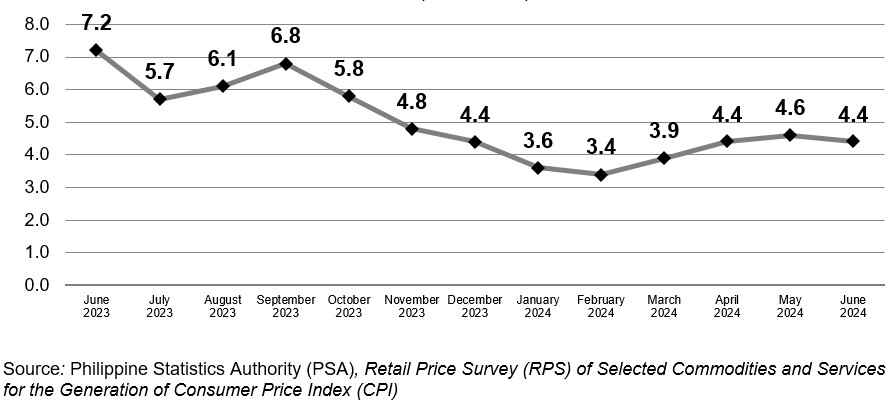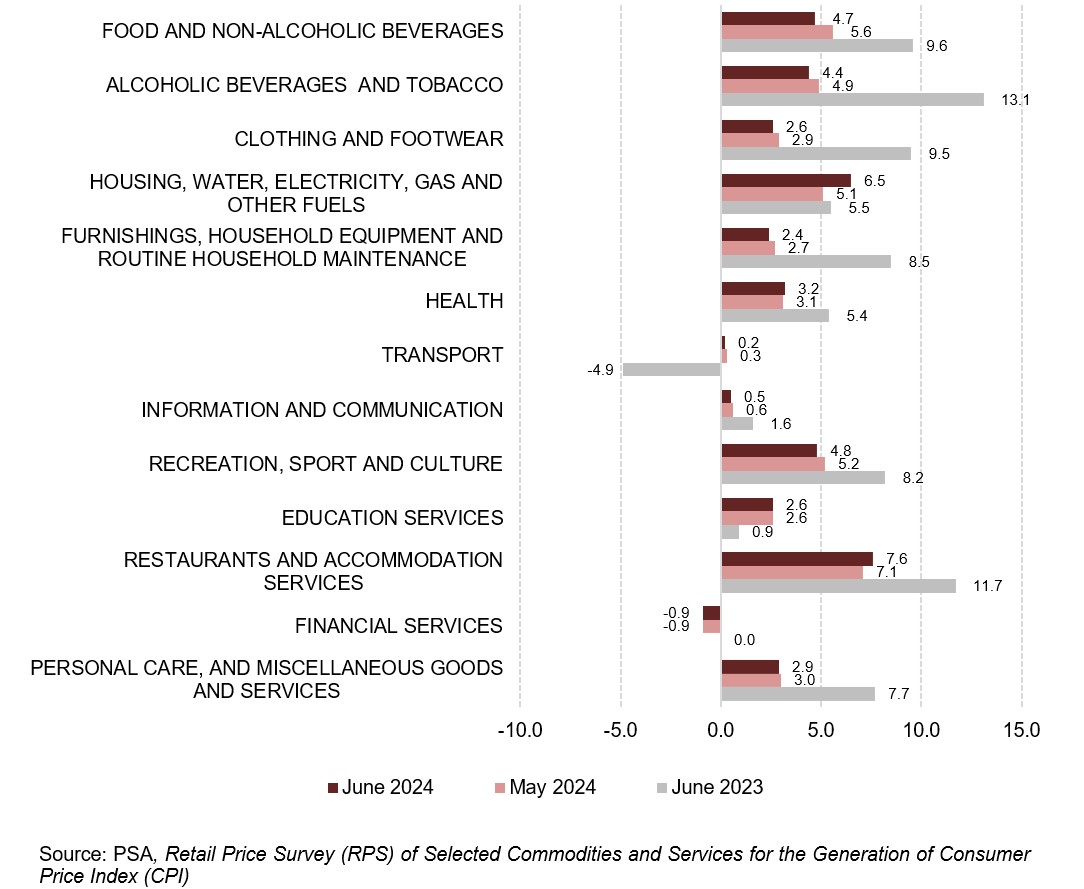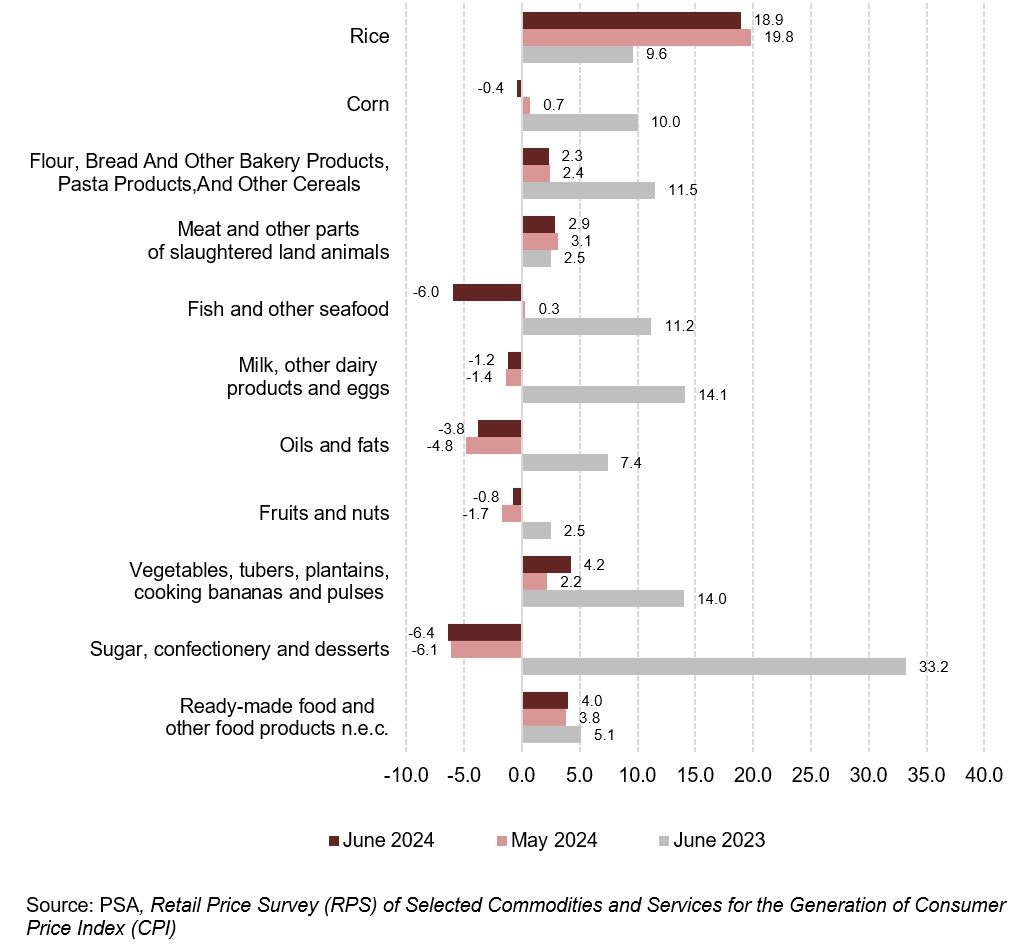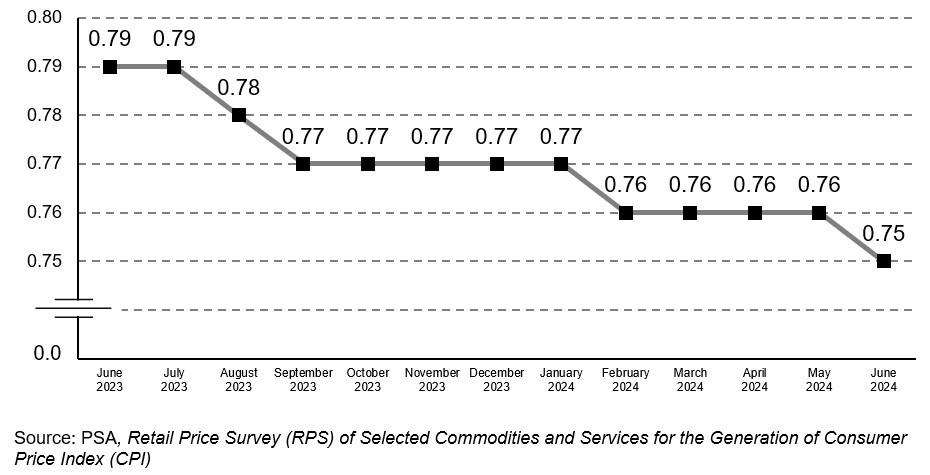Table 1. Year-on-Year Inflation Rates (%) in the Philippines and MIMAROPA Region,
by Province/Highly Urbanized City (HUC)
(2018=100)

Figure 1. Year-on-Year Inflation Rates (%) in MIMAROPA:
June 2023 to June 2024
(2018=100)

The headline inflation rate at the regional level further slowed down to 4.4 percent in June 2024, from the 4.6 percent in the previous month. In the same reference month of the previous year, the index posted at 7.2 percent. The main contributors to the downtrend of inflation were food and non-alcoholic beverages, with 4.7 percent inflation; clothing and footwear, with 2.6 percent inflation; and alcoholic beverages and tobacco, with 4.4 percent inflation.
INFLATION RATE BY COMMODITY GROUP
Figure 2. Year-on-Year Inflation Rates (%) in MIMAROPA,
by Commodity Group (2018=100)

Moreover, the following commodity groups exhibited a lower annual gain in June 2024:
• Furnishings, Household Equipment and Routine Maintenance of the House, 2.4%;
• Transport, 0.2%;
• Information and Communication, 0.5%;
• Recreation, Sport and Culture, 4.8%; and
• Personal Care, and Miscellaneous Goods and Services, 5.8%.
On the other hand, faster growths were observed in the following:
• Housing, Water, Electricity, Gas and Other Fuels, 6.5%;
• Health, 3.2%; and
• Restaurants and Accommodation Services, 7.6%.
Meanwhile, the following commodity groups retained their previous month’s inflation rate:
• Education Services, 2.6%; and
• Financial Services, -0.9%.
INFLATION RATE BY FOOD GROUP
Figure 3. Year-on-Year Inflation Rates (%) in MIMAROPA,
by Food Group
(2018=100)

The region’s food index decelerated to 4.8 percent in June 2024, from 5.9 percent in the previous month. In June 2023, the food inflation rate was higher at 9.5 percent. Moreover, the downtrend in June 2024 food index was mainly contributed by (1) fish and other seafood, at -6.0 percent inflation; (2) rice, 18.9 percent inflation; and (3) meat and other parts of slaughtered land animals, 2.9 percent inflation.
On the other hand, the annual indices of the following food items exhibited a faster growth, when compared with the annual figures from the previous month:
• Milk, other dairy products and eggs, -1.2%;
• Oils and fats, -3.8%;
• Fruits and nuts, -0.8%;
• Vegetables, tubers, plantains, cooking bananas and pulses, 4.2%; and
• Ready-made food and other food products n.e.c., 4.0%.
PURCHASING POWER OF PESO
The Purchasing Power of Peso (PPP) in the MIMAROPA Region decreased to Php 0.75 in June 2024, from Php 0.76 in the previous month. The PPP registered at Php 0.79 in June 2023. As a result, the amount of goods that can be presently purchased by consumers was fewer compared to when the PPP was higher. Furthermore, the decrease in PPP was attributed to the higher inflation rate, given that they have an inverse relationship.
Figure 4. Purchasing Power of Peso in MIMAROPA Region:
June 2023 to June 2024
(2018=100)


